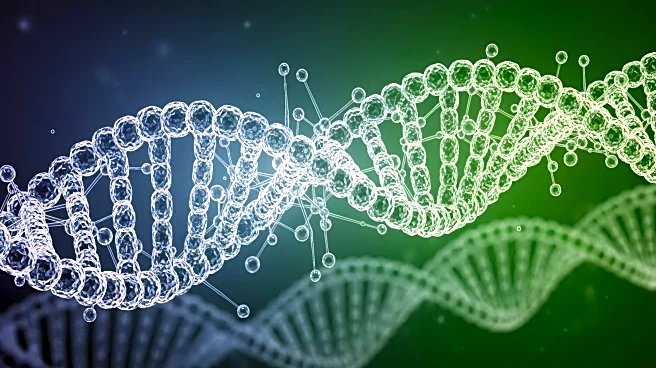What's Happening?
Researchers at Karolinska Institutet have uncovered how mammalian cells maintain the integrity of mitochondrial DNA (mtDNA) across generations. Published in Science Advances, the study reveals that mtDNA,
which is inherited solely from the mother, is protected from harmful mutations through two mechanisms: a genetic bottleneck and purifying selection. The genetic bottleneck transmits only a subset of mtDNA copies, while purifying selection removes mutated mtDNA during oocyte development. Using mouse models, the study found that fewer mtDNA copies passed from mother to offspring result in greater genetic variation and fewer harmful mutations.
Why It's Important?
This discovery is significant for understanding the evolutionary stability of mitochondrial inheritance and its implications for human health. Mutations in mtDNA are linked to various diseases, including mitochondrial disorders, cancer, and neurodegeneration. By elucidating the mechanisms that preserve mtDNA quality, the research offers potential pathways for therapeutic interventions aimed at enhancing mitochondrial genome stability. This could lead to new treatments for conditions driven by mtDNA mutations, improving health outcomes for affected individuals.
What's Next?
The findings provide a framework for further research into mtDNA quality control and its enhancement. Scientists may explore how these protective mechanisms can be leveraged to develop therapies for diseases associated with mitochondrial genome instability. Additionally, the study opens avenues for investigating the role of mtDNA in aging and other complex conditions, potentially leading to breakthroughs in biomedical research.
Beyond the Headlines
The study highlights the intricate balance between genetic variation and mutation prevention in evolutionary biology. Understanding how cells manage mtDNA integrity offers insights into the broader principles of genetic inheritance and species survival. This research also underscores the importance of mitochondrial health in overall cellular function, with implications for aging and longevity.










